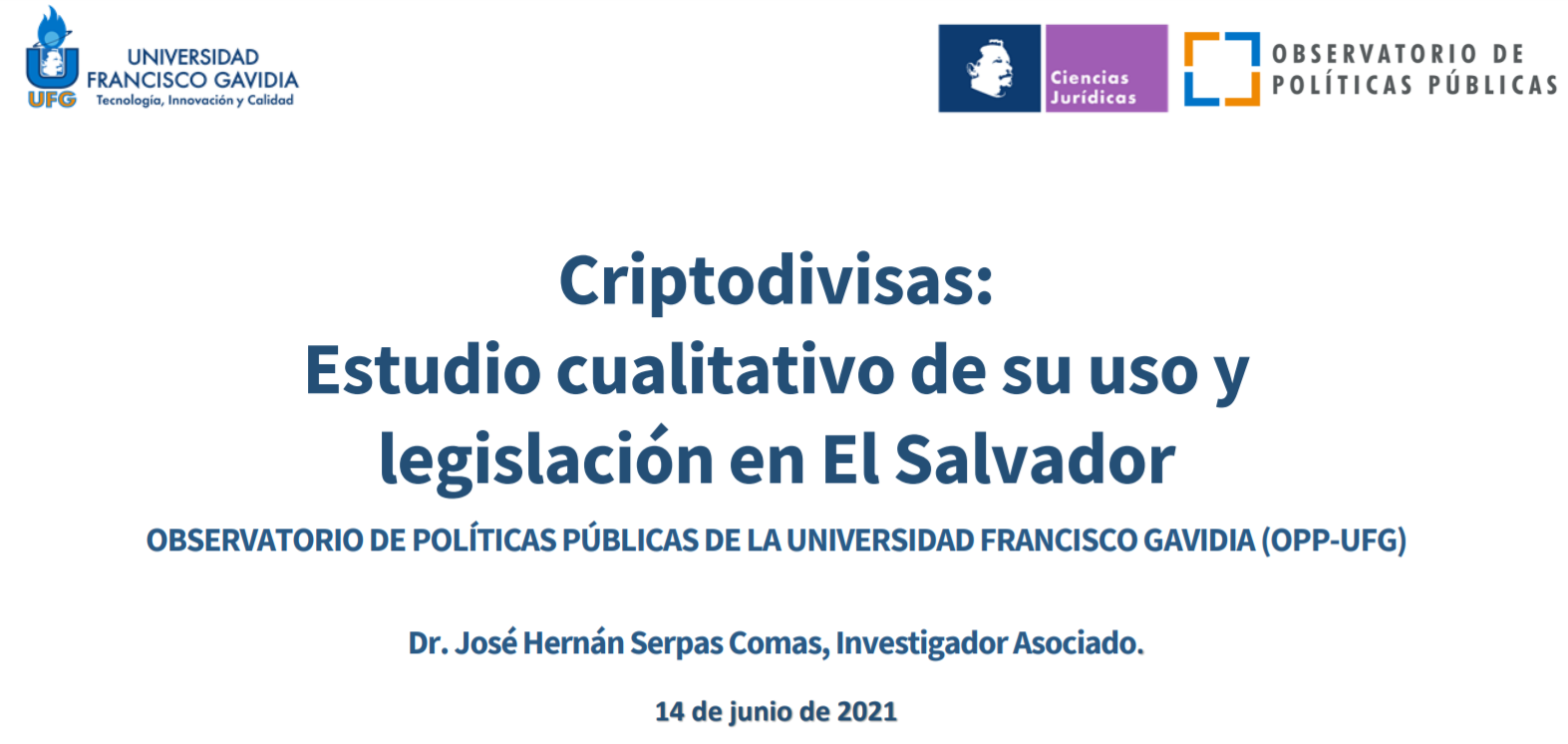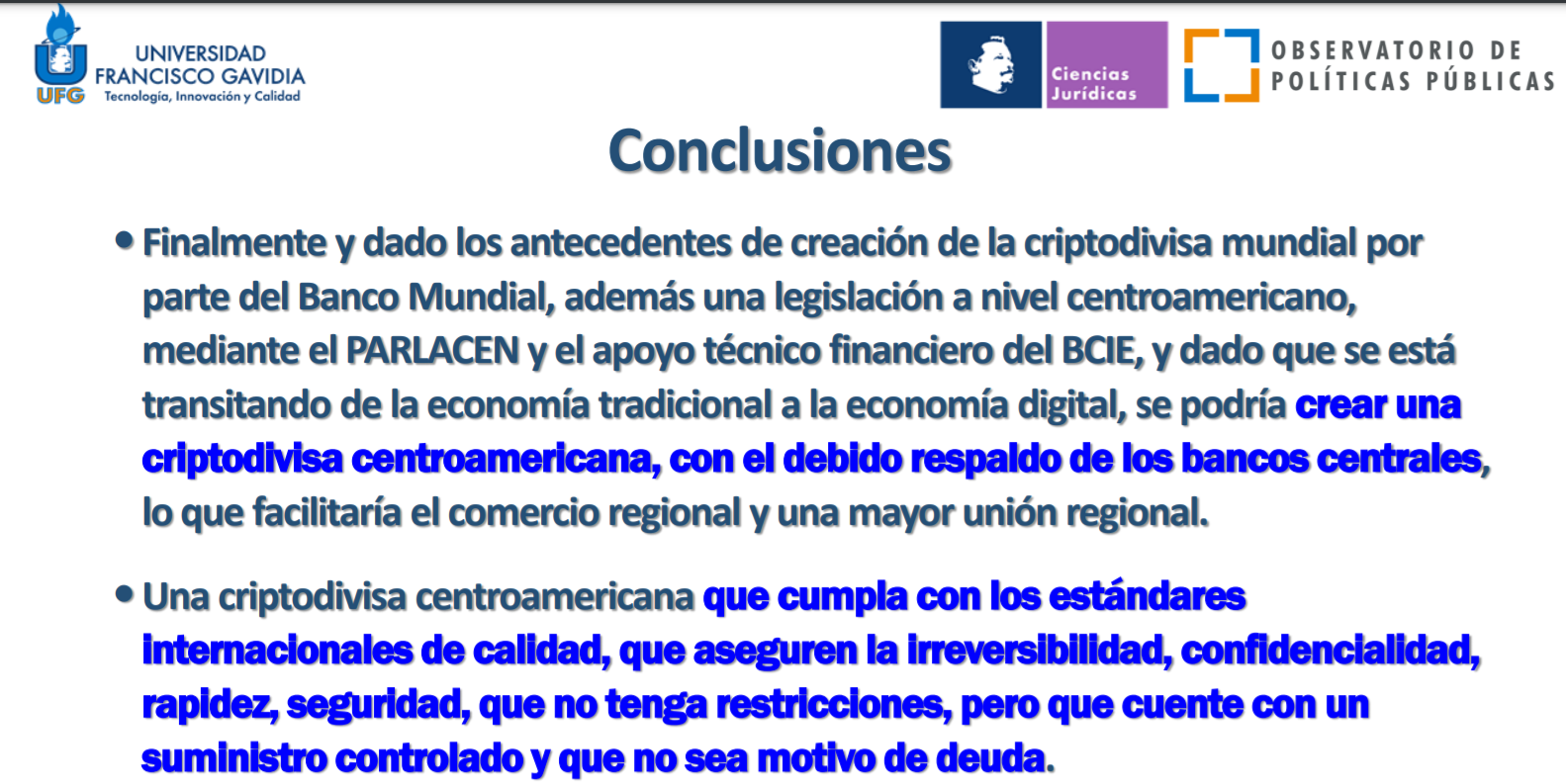The Observatorio de Políticas Públicas de la Universidad Francisco Gavidia shared the results obtained from the study conducted in which they analyzed the positions of users and actors of cryptocurrency technology in El Salvador, to propose some main lines of legislation, this due to the recent Bitcoin Law, approved by the Legislative Assembly.

The study details, that there is no precise definition of cryptocurrencies due to the fact that there is a debate between authors, and organizations about its meaning and the elements that constitute it, so only a more complete definition is presented by the content of elements and its normative value is that of the European parliament:
"They are a digital representation of value not issued by a central bank or public authority, nor necessarily associated with a fiat currency, but accepted by natural or legal persons as a means of payment and which can be transferred, stored or traded by electronic means".
The study conducted by the Observatorio de Políticas Públicas of the Universidad Francisco Gavidia, points out that there is a legal vacuum in El Salvador regarding cryptocurrencies, so international cases should be analyzed, to avoid damages to the financial system and illicit activities, such as money laundering or financing terrorism.

In addition, the Observatorio said that the regulation of cryptocurrencies is fundamental for their correct use and to create good practices when carrying out transactions with them, likewise there is a greater concern for cryptocurrencies not to be centralized, since they can represent a threat to inflation levels. For this reason, their use should be regulated in advance, so as not to create legal uncertainty.
This study points out that in order to talk about cryptocurrencies it is necessary to understand the technology that supports them, as well as to conceptually define the blockchain and its fundamental mechanisms.

"The international legislation that we can use as a basis to regulate its use in El Salvador should be sought in european countries such as Spain, France and Germany, due to its similarities with our legislation and because they have already traveled the road we started", says the study by the UFG.
Therefore, the study presents a series of proposals for lines of legislation:
- Given the characteristics presented by the blockchain and the lessons learned from international law, it is proposed the formulation of a specific law on blockchain in El Salvador, which includes:
- Definition of the Blockchain: Based on european and spanish regulation, it was observed that it is more difficult to maintain control over the use and creation of blockchain if it has not been defined in the legal system. If the blockchain is defined, using its characteristics and previous definitions of the World Bank (WB) and the European Central Bank (ECB), a regulation can be formulated according to the needs of the country.
- For the operation of this regulation, a Special Office should be created in the Ministry of Finance to watch over the rights of miners and help them with their procedures.
- The Banco Central de Reserva (BCR) should sign agreements with international Forex sites, so that users have secure platforms for their cryptocurrency operations.
- The BCR should be the supervising entity of transactions and sign agreements to ensure good practices in the exchange of cryptocurrencies.
- Create a tax regulation for individuals and legal entities that trade cryptocurrencies, to promote healthy competition with traditional currency traders.

The study ends with a series of conclusions among which it highlights:
- A Central American cryptocurrency that complies with international quality standards, that ensure irreversibility, confidentiality, speed, security, that has no restrictions, but that has a controlled supply, and that is not a reason for debt.
 English
English  Español
Español 
